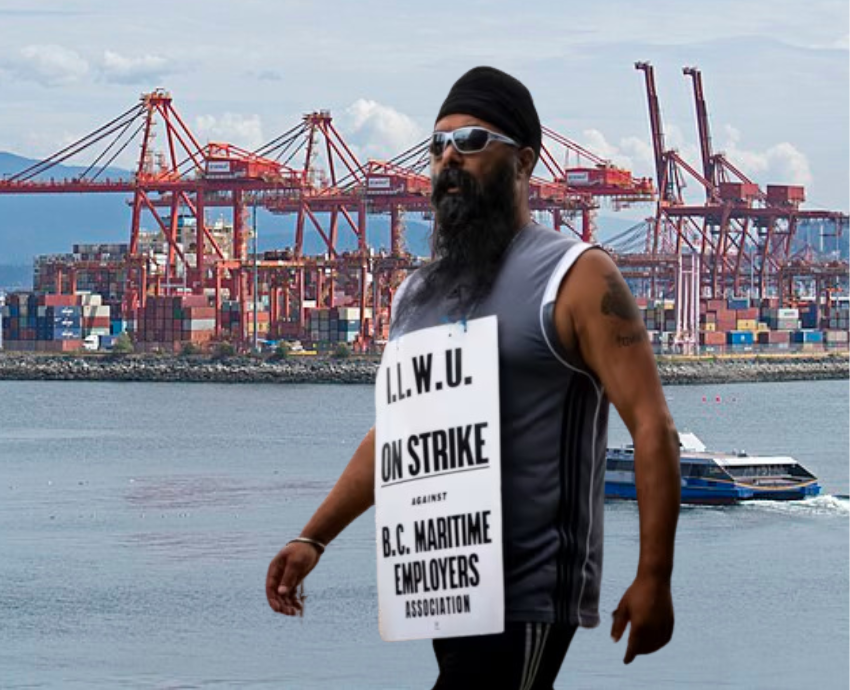
The picket lines are back up and dock workers in ports along the coast of so-called British Columbia are once again on strike as of July 18.
This comes as a government mediated tentative agreement only days earlier, on July 13, was rejected by the International Longshore and Warehouse Union Local 502 (ILWU) internal caucus. Of note, the tentative agreement between ILWU and the BC Maritime Employers Association (BCMEA) was rejected even before it was taken to a ratification vote of the full union membership.
Around 7400 dock workers had been on strike for almost two weeks over issues of automation, contracting out and wages, when the tentative deal came after pressure from the federal government.
Canada’s labour minister, Seamus O'Regan, called the mediated agreement a “forceful nudge”, which was clearly code for the threat of a legislated end to the strike — something employers’ associations in numerous industries, business owners and provincial governments had been pushing for.
The BCMEA put out an offensive statement condemning the internal caucus, saying that the “ILWU leadership is choosing to further harm Canada’s economy, international reputation and most importantly, to Canadians, their livelihoods and all those that rely on a stable supply chain.
“Clearly this fair and equitable package wasn’t enough for the ILWU internal leadership, and they chose to instead remain entrenched in their position with little regard to the lives and jobs they are impacting.”
The employers are not concerned enough about their own workers’ lives and jobs to offer a reasonable deal.
The Greater Vancouver Board of Trade responded to the rejection of the deal immediately, again ramping up calls on the federal government to force workers back to work and break the strike. Their CEO said: “We are dismayed and disappointed that the mediated deal was rejected by the ILWU, and job action is recommencing at Canada’s west coast ports.
“In the first 13 days of job action, [CA]$9.9 billion in traded goods were affected, causing significant economic harm. We are greatly concerned about the impacts the continuation of the strike will have on Canada’s international reputation as a reliable trade partner.”
They are predictably calling for an “expedited resolution”, which means strike-breaking legislation.
In their statement, the ILWU said the caucus “does not believe the recommendations had the ability to protect our jobs now or into the future. With the record profits that the BCMEA’s member companies have earned over the last few years, the employers have not addressed the cost of living issues that our workers have faced over the last couple of years as all workers have.”
Significantly, they explicitly rejected the four-year term sought by the BCMEA and the federal government (the union wants a two-year deal). According to the ILWU, “The term of the collective agreement that was given with today’s uncertain times is far too long. We must be able to readdress the uncertainty in the world’s financial markets for our members.”
By rejecting the deal, the ILWU internal caucus stood firm against the efforts of governments and the employers’ association and defied the government’s forceful nudge. I have written previously about the essential need for solidarity and support for the striking workers. This remains crucial and may become even more pressing in the coming days.
As one news report described when pickets went back up, “chants of ‘An injury to one, an injury to all’ and ‘one day longer, one day stronger’ were heard from ILWU members”.
An injury to one is indeed an injury to all, and the working class in so-called Canada will be harmed if these workers are forced back to work.